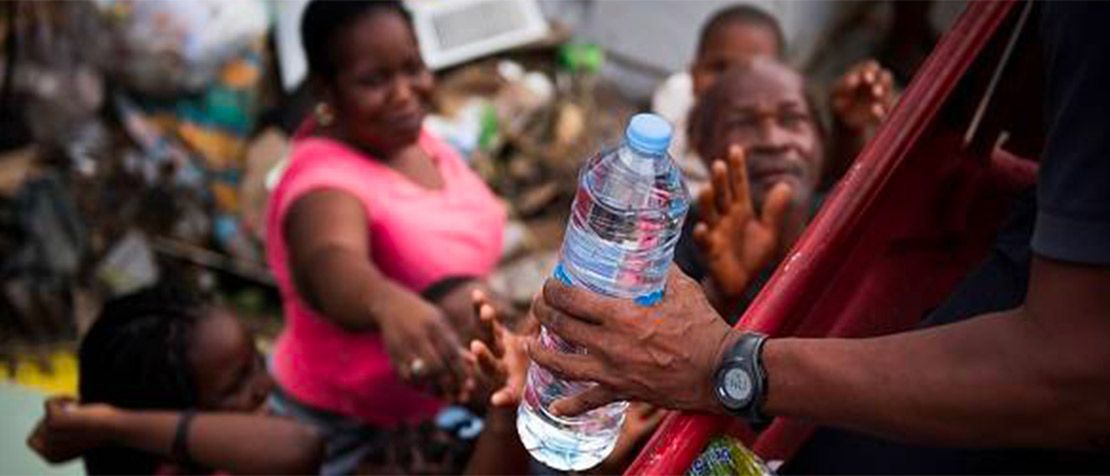
Contest winners begin emergency telecommunications training in Washington
Monday marked the start of a two-week training course in emergency telecommunications organized by the United States Telecoms Training Institute (USTTI).
Participants include winners of a competition that was opened to nationals from developing countries. They are being trained on the development of their country’s use of information and communication technologies (ICTs) for disaster risk reduction and management and their national emergency telecommunications plans.
“Extreme weather events linked to climate change are becoming increasingly frequent,” says Doreen Bogdan-Martin, Director of ITU’s Telecommunication Development Bureau. “It is therefore crucial that we strengthen people’s skills on the use of technologies for disaster risk reduction and management and for the development of national emergency telecommunications plans.”
The training takes place from 21 October to 1 November 2019 in Washington, DC, USA.
Training, travel and accommodation expenses are covered by ITU and USTTI.
“The USTTI is honored to partner with the ITU to conduct this competition that will enable officials to participate in the USTTI’s Emergency Telecommunications training sequence,” says James J. O’Connor, President of USTTI. “The training courses will address disaster communications preparedness and response and will share important information on the best practices that can save lives and limit the impact of natural and manmade disasters.”
Training participants share their views
Three winners selected from the emergency telecommunication competition are Nora Abdalla Hassan Baasher from Sudan, Ahmed Sidi Aman from Comoros and Emilia R. Cabral from Mozambique.
“I am looking forward to gaining this knowledge to motivate me on shaping the emergency plan for Sudan.” — Nora Abdalla Hassan Baasher
“I expect that the training will give me practical experience in all areas that will help me in the deployment of emergency plans — from preparedness to response — according to build the exact scenarios for each type of disaster,” says Nora Abdalla Hassan Baasher, Director of the Interconnection and Infrastructure Department at the Telecommunication and Post Regulatory Authority (TPRA) of Sudan. “I am looking forward to gaining this knowledge to motivate me on shaping the emergency plan for Sudan.”
“The low capacity for disaster preparedness and response would be an aggravating factor of the country’s vulnerability,” says Ahmed Sidi Aman, Head of the Transmission & Corporate Network Department at Telma Comores, the second telecom operator in Comoros. “Thus, the opportunity to participate in this training in emergency telecommunication will be for me and for the company, an excellent springboard that will allow us to effectively support the development of the country in this important area that is civil security.”
Building disaster preparedness in Comoros
“My country, which is a group of 4 volcanic islands, hosts an active volcano and is sensitive to hydro-meteorological (rising ocean waters, floods, cyclones…) and geophysical (earthquakes, volcanic eruptions, tsunamis, landslides) hazards,” says Mr Aman. “We have been having earthquakes almost every day for more than a year. The recent discovery that these seismic disturbances are due to the birth of a new underwater volcano off the island of Mayotte, forces us to follow its evolution with particular attention in order to be ready for any eventuality.”
“As a project manager, I am currently involved in developing a project called Big Data in Response to Natural Disasters in Mozambique and it is in this context that this training will be very useful and timely for me.” — Emília Regina Cabral Raimundo
“In late April 19, Comoros was hit by Cyclone Kenneth. As interim CTO and focal point of Telma Comores within the national crisis unit set up by the government for this purpose, I was able to witness the efficacy of the national emergency plan, which allowed us to significantly reduce the impact on vulnerable people and the loss of human life by saving, protecting, providing the public with warnings, advice, information and evaluating and facilitating the recovery of the community.” says Aman. “However, like in any plan, improvements are needed to make it even better, especially in the management of communications in emergency.”
“The ideal would be that I can acquire and well exploit all the knowledge that I will learn during this training,” says Aman. “But if I had to highlight one, it would be mainly, a clear understanding of the strategies of planning and management of ICTs in times of natural disaster.”
Big Data for disaster management in Mozambique
“As a project manager, I am currently involved in developing a project called Big Data in Response to Natural Disasters in Mozambique and it is in this context that this training will be very useful and timely for me,” says Emília Regina Cabral Raimundo of the Research and Development Department at the Communications Regulatory Authority of Mozambique (ARECOM). “Being a country prone to natural disasters, unfortunately Mozambique does not have a feasible and effective national emergency telecommunication system. In this context, the communications regulator (ARECOM) and the National Institute for Disaster Management (INGC) are working on a project that aims to use Big Data from the telecommunication sector to understand the number of people affected by natural disasters and also create a testbed for disaster response. Possessing a testbed, it will be easier to understand how to improve coordination between mobile operators and humanitarian response teams and also to understand the regulatory and technical requirements to deploy satellite telecommunications for disaster communications.
“After the training, I expect to be able to lead the Research and Development unit to implement a testbed for the integration of both Big Data and the equipment or regulation to deploy solutions for emergency communications,” says Ms Raimundo. “With this training I hope to obtain in-depth knowledge and understanding on how to prepare regulation if need be and also “to best utilize the equipment for emergency telecommunications. The equipment will support communities and emergency response units to communicate during and after natural disasters.”
Photo: MARTIN BUREAU/AFP/Getty Images.
